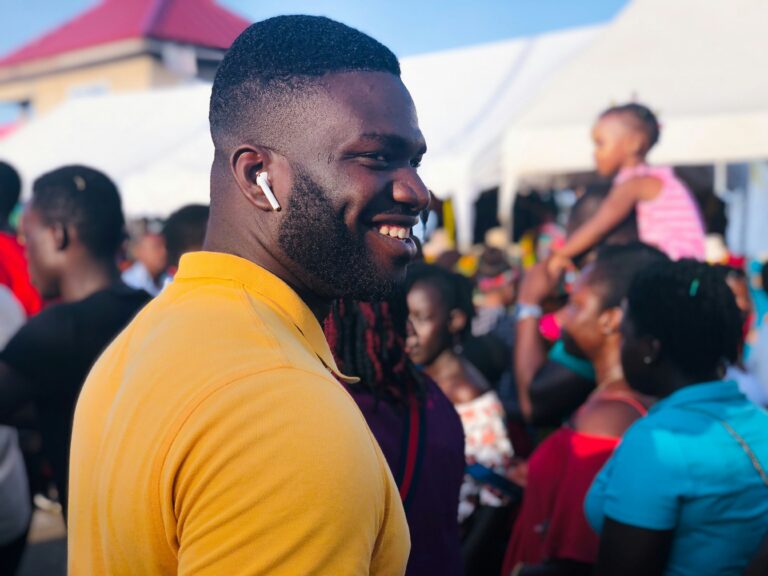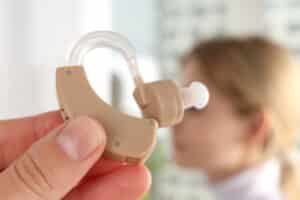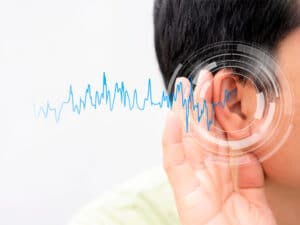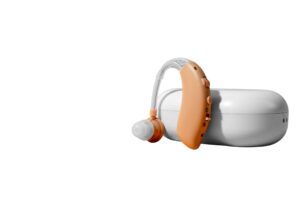Hearing loss affects millions of people worldwide, yet many hesitate to seek professional treatment. With advancements in consumer technology, devices like the Apple AirPods Pro 2 have introduced accessibility features that mimic some functions of traditional hearing aids. Apple’s Live Listen and Conversation Boost have gained attention as potential hearing assistance tools, raising an important question: Can AirPods truly replace professionally fitted hearing aids?
My goal is to provide a review of AirPods as hearing assistance devices and help you understand their benefits, limitations, and when professional hearing aids are the better choice. If you’re experiencing hearing difficulties, it’s important to schedule an appointment with a qualified audiologist to determine the best solution for your needs.
Understanding the Apple AirPod Hearing Aid Feature
Apple has developed features within iOS that allow AirPods to amplify sound, helping those with mild hearing difficulties. The two primary features include:
- Live Listen – This allows your iPhone to act as a remote microphone, capturing sounds and transmitting them to your AirPods. It can help in one-on-one conversations or when trying to hear a speaker at a distance.
- Conversation Boost – Available on the AirPods Pro 2, this feature enhances voices directly in front of the user while reducing background noise. It is designed to improve speech clarity in conversations.
While these features can be beneficial in certain situations, they are not a substitute for properly fitted hearing aids. Let’s explore the pros and cons of using Apple AirPods as a hearing assistance tool.
Pros of Using Apple AirPods as Hearing Aids
1. Accessibility & Cost-Effectiveness
One of the biggest advantages of using AirPods as hearing aids is affordability. Traditional hearing aids can be expensive, whereas AirPods (combined with an iPhone) are relatively more accessible for those who may not be ready to invest in a professional device.
Additionally, because AirPods are widely available, there is no need for a prescription or insurance coverage, making them an attractive option for individuals exploring hearing assistance for the first time.
2. Seamless Integration with Apple’s Ecosystem
Apple users benefit from the seamless connectivity of AirPods with their iPhone, iPad, or Mac. Users can easily adjust settings, balance sound, and control noise reduction through their device’s accessibility settings, making the process intuitive and user-friendly.
3. Discreet and Stylish
Unlike traditional hearing aids, which some people still associate negatively, AirPods blend in as regular wireless earbuds. This makes them a more socially acceptable option for those hesitant to wear visible hearing aids.
4. Useful in Specific Situations
AirPods can enhance sound clarity in controlled environments, such as:
- One-on-one conversations in quiet rooms.
- Listening to TV or podcasts when paired with an iPhone’s Live Listen feature.
- Temporary hearing assistance for individuals experiencing mild or situational hearing challenges.
However, as we will discuss next, these benefits come with significant limitations.
Cons of Using Apple AirPods as Hearing Aids
1. Limited Performance Compared to Professional Hearing Aids
AirPods are not medical devices and lack the sophisticated technology found in professionally fitted hearing aids. Some key limitations include:
- Lack of customization based on an individual’s specific hearing loss profile.
- Limited amplification, making them unsuitable for moderate to severe hearing loss.
- Inability to filter complex background noise effectively.
2. Comfort & Battery Life Concerns
While traditional hearing aids are designed for all-day wear, AirPods have a limited number of ear tips that can be ill fitting or become uncomfortable over time, especially for those with sensitive ears. Additionally, AirPods require frequent recharging, whereas hearing aids are built with long-lasting battery options designed for extended use.
3. Lack of Professional Audiological Support
Unlike hearing aids that are fine-tuned by an audiologist, AirPods provide a one-size-fits-all approach. Without professional assessment, users may not receive the appropriate amplification for their specific type and degree of hearing loss, potentially leading to further auditory strain.
If you suspect hearing loss, it’s crucial to see a professional rather than rely on consumer technology. An audiologist can perform a comprehensive hearing evaluation and recommend the best solution tailored to your needs.
4. Situational Limitations
AirPods are not well-suited for environments with high background noise, such as:
- Restaurants and social gatherings, where noise filtering is essential.
- Workplaces with multiple sound sources, making speech harder to distinguish.
- Outdoors in windy conditions, where amplified background noise can be distracting.
When Are Apple AirPods a Good Option?
AirPods may be useful for individuals who:
- Experience mild hearing difficulties and need occasional assistance.
- Want an affordable and accessible hearing boost before considering hearing aids.
- Already use Apple devices and want an integrated, multi-purpose solution.
- Need situational assistance, such as hearing conversations in quiet environments or listening to lectures or TV.
However, these advantages are outweighed by the lack of customization and medical oversight, which is essential for those with more pronounced hearing challenges.
When Professional Hearing Aids Are the Better Choice
If you have persistent hearing difficulties, professionally fitted hearing aids are the best solution. You should seek an audiologist if:
- You experience moderate to severe hearing loss that impacts daily communication.
- You struggle to hear even in quiet settings or frequently ask others to repeat themselves.
- You find background noise makes it difficult to understand speech.
- You want a device that is customized to your hearing profile and can adapt to different environments.
- You need ongoing support and professional adjustments for optimal hearing health.
An audiologist will conduct a thorough hearing assessment and recommend hearing aids that match your specific needs, ensuring long-term comfort, performance, and better overall hearing health.
Final Verdict: Are Apple AirPods a Viable Hearing Aid Alternative?
While Apple AirPods can provide mild hearing assistance in certain situations, they are not a true replacement for professional hearing aids. Their lack of customization, limited noise reduction, and inability to address more serious hearing loss make them an insufficient solution for those who need reliable, everyday hearing support.
If you suspect you have hearing loss, the best course of action is to consult with a licensed audiologist. A professional evaluation will provide you with personalized recommendations and ensure you receive the best possible hearing solution.
Schedule a Professional Hearing Assessment Today
If you’ve been struggling with hearing difficulties, don’t rely on consumer technology to address a medical issue. A comprehensive hearing evaluation with a licensed audiologist can determine the best treatment for your unique needs.
Contact our clinic today to schedule an appointment and take the first step toward better hearing and improved quality of life!








